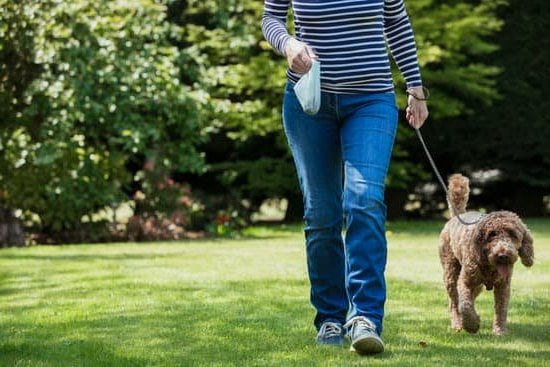Is a 5 year old dog too old to train? Many people believe that once a dog reaches a certain age, training becomes futile or even impossible. However, this common misconception overlooks the fact that older dogs are often just as capable of learning and adapting as their younger counterparts. In this article, we will explore the benefits of training an older dog, while also discussing age-related considerations and providing tips for successful training techniques.
Training a 5-year-old dog can be incredibly rewarding for both the pet and their owner. While younger dogs may have boundless energy and enthusiasm, older dogs often possess greater focus, maturity, and an eagerness to please their owners. This makes them ideal candidates for training, as they already have a solid foundation of understanding basic commands and behaviors.
However, it’s important to acknowledge that training an older dog may come with its own set of challenges. Factors such as existing habits, physical limitations, and potential health issues must be taken into consideration when devising a training plan. Despite these challenges, with patience, consistency, and the right techniques, it is very much possible to successfully train a 5-year-old dog.
Benefits of Training an Older Dog
Training a 5-year-old dog may seem daunting to some, but there are actually several benefits to training an older dog. One of the main advantages is that older dogs tend to have a calmer disposition compared to younger dogs. This means they may be more receptive to training and can focus for longer periods of time, making the training process smoother and more efficient.
Additionally, older dogs have already developed a bond with their owners and have a better understanding of basic commands like sit, stay, and come. This can serve as a solid foundation for further training. Their maturity also often translates to better impulse control and less destructive behavior, which can make the training experience more enjoyable for both the owner and the dog.
Moreover, training an older dog can be a deeply rewarding experience. Older dogs are typically more loyal and grateful for the time spent with their owners, making the bond between them even stronger.
With patience and understanding, owners can help their older dogs learn new tricks or behaviors, leading to a sense of accomplishment for both parties involved. Ultimately, training a 5-year-old dog can strengthen the human-dog relationship and enhance the overall quality of life for the canine companion.
Age-Related Considerations
Age-related challenges and adjustments are important factors to consider when training a 5-year-old dog. While the benefits of training an older dog are numerous, there are certain considerations that need to be taken into account for successful training.
Physical Limitations
One of the primary age-related considerations when training an older dog is their physical limitations. Older dogs may have reduced mobility, arthritis, or other health issues that can affect their ability to perform certain tasks. It’s important to tailor the training program to accommodate these limitations and not push the dog beyond their capabilities.
Established Behaviors
Unlike puppies, older dogs may have already developed certain behaviors and habits that could pose a challenge during training. They may be set in their ways and resistant to change. Patience and understanding are crucial in addressing these established behaviors while introducing new ones.
Mental Stimulation
As dogs age, mental stimulation becomes increasingly important. Training should include activities that provide mental enrichment for the dog, such as puzzle toys, obedience exercises, and interactive games. Keeping an older dog mentally engaged can have a positive impact on their overall well-being.
Considering these age-related challenges and making necessary adjustments in the training approach can help set realistic expectations and pave the way for a successful training experience with a 5-year-old dog.
Training Techniques for Adult Dogs
Training a 5-year-old dog is not only possible but also beneficial for both the dog and its owner. Although older dogs may require some adjustments in training techniques, they are still capable of learning new skills and behaviors. When it comes to training an adult dog, patience, consistency, and understanding are key elements for success.
One effective training technique for adult dogs is positive reinforcement. This method involves rewarding the dog with treats, praise, or affection whenever they exhibit the desired behavior. Positive reinforcement has been proven to be an effective way to teach older dogs new commands or tricks.
Another useful strategy for successfully training a 5-year-old dog is using hand signals in addition to verbal commands. Some older dogs may have hearing impairments, so incorporating hand signals can help bridge the communication gap and make it easier for them to understand what is being asked of them.
It’s also important to keep training sessions short and engaging to maintain the older dog’s focus and motivation. Older dogs may not have the same level of energy as younger pups, so breaking up training into shorter sessions throughout the day can be more effective than long, exhausting sessions. By adapting these techniques and strategies, owners can effectively train their 5-year-old dogs and enjoy the many benefits that come with a well-trained pet.
| Training Techniques | Benefits |
|---|---|
| Positive Reinforcement | Rewards good behavior |
| Hand Signals | Effective for hearing-impaired dogs |
| Short Training Sessions | Maintains focus and motivation |
Setting Realistic Expectations
When it comes to training a 5-year-old dog, it’s important for pet owners to set realistic expectations. While older dogs can still learn and benefit from training, it’s essential to understand that the process may differ from that of younger dogs. By managing expectations for training progress and results, pet owners can approach the process with a clear understanding of what is achievable.
Understanding Limitations
One of the first steps in setting realistic expectations for training an older dog is understanding their limitations. Older dogs may have physical limitations or health issues that could affect their ability to learn certain commands or participate in certain activities. Additionally, they may have established behaviors that are more challenging to change compared to a younger dog. By recognizing these limitations, pet owners can tailor their training approach accordingly.
Adjusting Training Methods
With realistic expectations in mind, pet owners should also be willing to adjust their training methods when working with an older dog. This may involve taking a gentler approach, using more positive reinforcement techniques, and being patient with the learning process. Understanding that it may take longer for an older dog to grasp new commands or behaviors is crucial in managing expectations and avoiding frustrations during the training process.
Consistency and Persistence
Setting realistic expectations for training progress also involves recognizing the importance of consistency and persistence. While older dogs may take longer to learn new things, consistent training sessions and patience can yield positive results over time. It’s essential for pet owners to remain committed to the process and understand that progress may be gradual but ultimately rewarding.
By managing expectations for the training progress and results with an older dog, pet owners can approach the process with patience and understanding, ultimately leading to a successful experience for both the owner and their beloved canine companion.
Importance of Consistency
Training a 5-year-old dog requires consistency from the owner or trainer. Consistency is essential in teaching an older dog new commands and behaviors. Dogs thrive on routine, so having consistent training sessions at the same time each day can help them understand what is expected of them. Consistency also means using the same commands and cues for specific behaviors to avoid confusing the dog.
Consistency in training also extends to everyone who interacts with the dog. Family members or anyone involved in the dog’s care should be on board with the training methods and commands being used. If everyone uses different cues or allows different behaviors, it can hinder the training progress and cause confusion for the dog. Consistent reinforcement of good behavior and correction of unwanted behavior is crucial for an older dog to understand what is expected of them.
In addition, consistency in training can help reinforce positive habits and prevent unwanted behaviors from occurring. Older dogs may have established habits, so consistent training can help modify these behaviors over time. By remaining consistent with training techniques and expectations, owners can set their older dogs up for success in their training journey.
| Importance of Consistency | Emphasizing the Role of Consistency in Training Older Dogs |
|---|---|
| Consistency helps dogs understand what is expected of them | Using the same commands avoids confusing the dog |
| All individuals interacting with the dog should be consistent in their approach | Consistent reinforcement helps modify established habits |
Patience and Understanding
Training an older dog requires a great deal of patience and understanding. Unlike puppies, older dogs may have established behaviors and habits that can be challenging to modify. However, with the right approach and mindset, it is entirely possible to train a 5-year-old dog effectively.
Here are some key points to keep in mind when training an older dog:
- Be patient: Older dogs may take longer to learn new commands or behaviors compared to younger dogs. It’s important to remain patient and avoid becoming frustrated during the training process.
- Understand their limitations: Older dogs may have physical limitations or health issues that can affect their ability to learn certain commands or participate in rigorous training activities.
- Adjust your expectations: It’s essential to set realistic expectations when training an older dog. Understand that progress may be slower, but consistency and positive reinforcement can yield successful results over time.
Remember, older dogs have their unique personalities and experiences, so it’s crucial to approach training with empathy and understanding. By fostering a supportive and compassionate environment, you can help your 5-year-old dog thrive in their training journey.
Success Stories
Training a 5-year-old dog may come with its challenges, but there are plenty of success stories that demonstrate the benefits and rewards of training older dogs. Real-life examples of older dogs successfully trained and their owners’ experiences can serve as motivation for those who may be hesitant to begin training their senior canine companions. Here are some inspiring stories that showcase the potential for success when training a 5-year-old dog:
- Max, a 5-year-old Labrador Retriever, was adopted by a loving family who was initially unsure about training an older dog. With patience, consistency, and positive reinforcement, Max learned new commands and behaviors, proving that age is not a barrier to learning.
- Sadie, a 6-year-old rescue dog, had never received any formal training prior to being adopted. Despite her age, she excelled in obedience training and even participated in agility courses, showcasing the potential for older dogs to thrive in various training activities.
These success stories emphasize the fact that older dogs can indeed be trained effectively, debunking the misconception that they are too old to learn new tricks. They also highlight the bond that forms between owners and their senior dogs during the training process.
Owners of older dogs who have successfully completed training emphasize the importance of patience, understanding, and consistent practice. Each dog’s progress may vary, but with dedication and a positive approach, it is evident that older dogs can adapt and respond well to training.
Overall, these real-life examples serve as testaments to the potential for success when training older dogs. They provide encouragement for dog owners considering embarking on a training journey with their senior canine companions and demonstrate the fulfilling outcomes that can result from investing time and effort into their pets’ continued education.
Conclusion
In conclusion, the idea that a 5-year-old dog is too old to train is simply a misconception. Training an older dog can be a rewarding experience for both the canine and its owner. As discussed, there are numerous benefits to training an older dog, such as their maturity and established behavior traits. While age-related considerations and potential challenges may arise, with the right techniques, patience, and consistency, successful training outcomes are very achievable.
It is important for dog owners to understand that setting realistic expectations for the training progress of an older dog is crucial. Every dog is unique and will respond differently to training methods. Therefore, patience and understanding are key components in successfully training a 5-year-old dog. This requires a commitment from the owner to provide consistent training and reinforcement of desired behaviors.
Lastly, it’s important to recognize that there are many success stories of older dogs being trained effectively by their owners. These real-life examples serve as inspiration for those considering or currently undertaking the training of their mature canine companion.
By summarizing the key points addressed in this article, it is evident that with dedication and a positive approach, training an older dog can lead to a fulfilling relationship that continues to grow stronger over time. Therefore, pet owners should not hesitate to engage in this rewarding endeavor.
Frequently Asked Questions
Can You Train a Dog That Is 5 Years Old?
Yes, it is absolutely possible to train a dog that is 5 years old. While it may take a little more patience and consistency compared to training a younger pup, older dogs are still capable of learning new behaviors and commands.
It’s important to use positive reinforcement and understand the individual dog’s capabilities and limitations when training a senior dog.
What Age Is a Dog Too Old for Training?
There isn’t a specific age at which a dog becomes too old for training. In fact, many older dogs can benefit from continued mental stimulation and obedience training to keep their minds sharp and maintain good behavior.
However, it’s important to be mindful of any physical limitations or health issues the dog may have as they age, and adjust training methods accordingly.
Is a 5 Year Old Dog Considered Old?
A 5 year old dog is not typically considered “old” in terms of overall lifespan, as many dogs live well past this age. However, in terms of maturity and behavior, a 5 year old dog can be considered as an adult or even middle-aged depending on the breed and size.
It’s important for pet owners to provide appropriate care, exercise, and mental stimulation for their 5 year old furry companions to ensure they stay healthy and happy throughout their lives.

Welcome to the blog! I am a professional dog trainer and have been working with dogs for many years. In this blog, I will be discussing various topics related to dog training, including tips, tricks, and advice. I hope you find this information helpful and informative. Thanks for reading!





